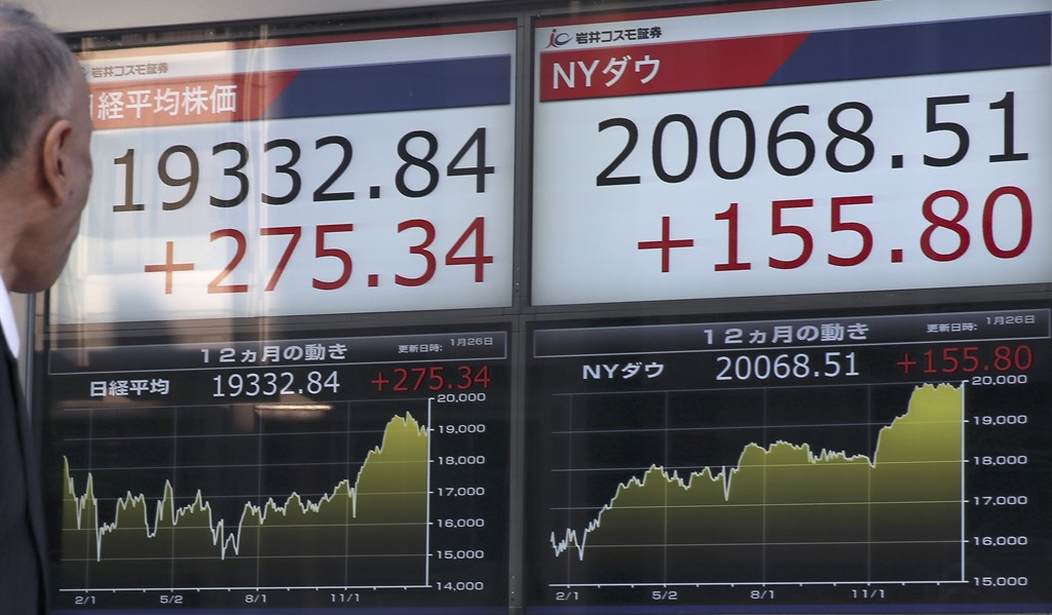It was a fantastic week for the stock market which eased into the weekend with a whimper. It’s a reminder the market doesn’t go up every single day. I cringe when so-called stock market experts complain when the market stalls as though sideways movement after the post-election rally is a bearish sign.
A lot of folks have begun to return to the market, and many want to ‘catch-up’ quickly – in other words, make a lot of money fast. You cannot get gains of yesterday or the last several years when you invest today, which is why the continual dithering and procrastination is a critical mistake.
With that being said, the market and economy are poised to move higher. However, with higher expectations come more chances for disappointment. The myopic manner in which investors watch the market these days will lead to occasional overreactions. I plan to take advantage of those. Meanwhile, even in disappointment, there are slivers of positivity.
4Q16 GDP
In the fourth quarter of 2016, the Gross Domestic Product (GDP) of 1.9% was well below consensus of 2.2%, and whispers of a potential 3.0% or better growth. There were some major positive signals in that report:
- Inventories surged to $48.7 billion underscoring business, bracing for a return of consumers
- Mining jumped 24.3%, and Texas saw its first net hiring of energy workers in more than a year
- Business investors climbed 3.1% after fourth straight quarters of decline
Persistent problems of the strong dollar hurt exports and increased imports negatively, impacting the GDP and lagging private investment may not improve immediately; most likely, it will not become worse.
The nation is positioned and poised. And now, it’s just about execution in Washington to not only spark the revival but also keep it stoked for that virtuous cycle.
Tariffs & Republican Party
This week, the word ‘tariff’ was tossed around a lot much to the chagrin of some business leaders and many Republicans. However, it wasn’t always considered to be against Republican orthodoxy; on the contrary, the use of tariffs was once the center plank of the party’s economic policies. Abraham Lincoln was known to favor tariffs to protect the economy and to generate revenue.
But it was the landslide victory of William McKinley; after winning the election in 1897, he gained popularity as a champion for the use of tariffs and signed the Dingley Tariff.
- Imposed tariffs on wool and hides
- Increased existing tariffs on linens, silks, china and (doubled tariff) sugar
America began an impressive rebound that began with the Panic of 1983, as business investments surged ultimately, resulting in McKinley’s victory by an even larger margin in the election. On a side note, McKinley was considered the first president to manage the media.
The Business of America is Business
Then, there were Warren Harding and Calvin Coolidge, who campaigned on trade protectionism as a way to pull the country out of a Depression. The Fordney - McCumber Tariff Act of 1922 allowed the President latitude to hike tariffs as high as 50%. For those that railed about inexpensive imports, President Coolidge would reply: “Cheap goods means cheap men.”
The roaring twenties ushered in a booming economy and it was the best decade for the stock market.
Smoot - Hawley
So, what changed the Republican Party from proud protectionists to free market disciples? In reaction to the economic turmoil that accompanied the stock market crash of 1929, President Herbert Hoover signed the Smoot-Hawley Tariff into law. The second highest tariff in U.S. history, itcovered 20,000 import items and soon triggered counter-tariffs from key trading partners.
Many economists think this act turned the aftermath from a stock market crash into the Great Depression.
FDR beat Hoover. Republicans moved away from the idea of tariffs as an economic weapon or revenue generator, but there was a time when it was a slam dunk. It is true the world is more intertwined than ever before, including ‘product sharing’ between Mexican and United States manufacturing.
It’s going to be interesting to see how this all plays out, but I suspect there will not be any additional tariffs.

























Join the conversation as a VIP Member